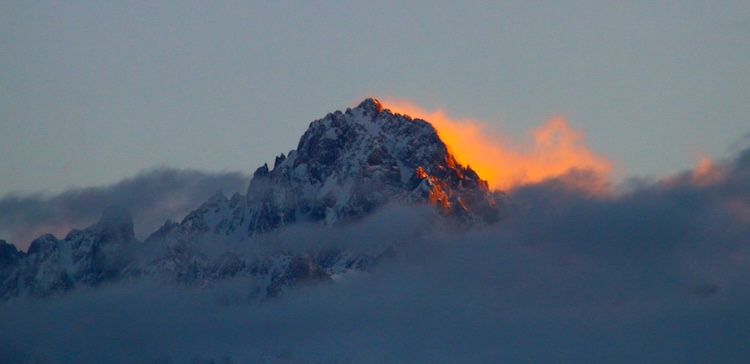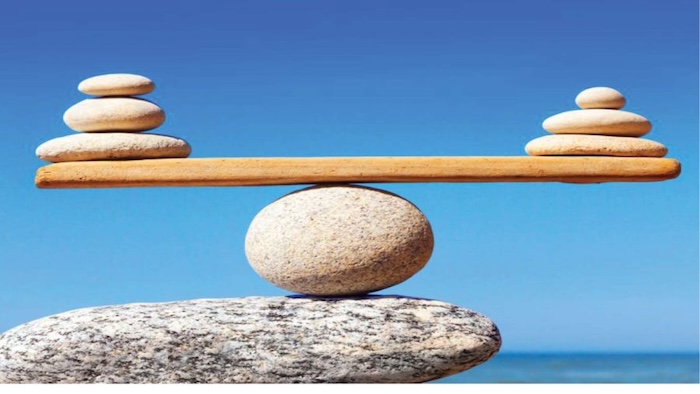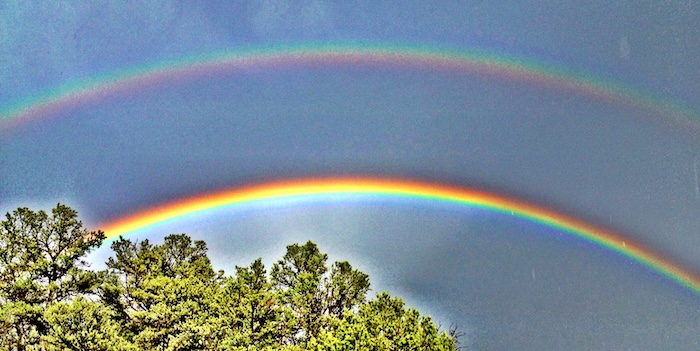The Holy of It
To face the warmth of a rising sun
To hear songs in a meadow no human could sing
To catch the wafting scent of lavender on a summer breeze
To stalk a trout in the riffles of a stream
To savor cardamom and vanilla and lemon and chai
To share kindness with a stranger’s eyes
To see into a heart who loves yours too
To hold the hand of a child against a world of troubles
To know life with a sense of enduring grace
This is the holy of it
The “holy of it” is not for everybody, it is just for the rest of us. For Putin and Xi and Kim and Khamenei and Netanyahu and Trump, the holy of it conflicts with their quest for power; bloodlust finds no home in holy. For those who believe bullets and bombs make peace, may God have mercy upon your soul. To the innocents who fall victim to evil—especially the children—may your souls soar above all others.
In America, we are now facing another “Now what?” moment. “Now what?,” is the question we ask when we should have asked, “Then what?,” before we did what we did to prompt the question, “Now what?” Anyone who has been educated in the complexities of international relations and foreign policy knows that “Then what?” is the most important question asked in any strategic planning session along with questions like “So what?” and “Which means that … ?”. These questions tie actions to consequences while taking responsibility for outcomes. All must be considered against the standard of our national interest.
Questions like “Then what?” are so simple and yet so often ignored. (See the Vietnam War and the War in Iraq and Afghanistan.) Leaders who have big egos and big bombs easily get their countries in trouble—sometimes for decades to come (See George W. Bush and Vladimir Putin). Every branch and every leaf on the strategic tree must be considered. These questions are critical to avoiding the “Now what?” trap, which more often than not carries the preamble “Oh shit”; as in, “Oh shit, now what?” They require a keen intellect, relentless curiosity, and high humility. In these matters, one must always be willing to be wrong and to be extraordinarily nimble in demeanor and decision-discipline.
Just five months into his second presidency, I do not see any of theses disciplines or attributes in Donald Trump. It is not clear he asks any questions at all, let alone the correct questions. He does not strike me as a curious man. Bloated by conceit, he dithers in apparent blissful ignorance while he surrounds himself with profoundly incompetent people who are more focused on affixing their lips to his backside than they are in telling the truth. The war in Ukraine did not end “on day one,” nor have we seen ninety new trade deals “in ninety days,” and in spite of accounting trickery and treachery his “big beautiful bill” will explode the deficit beyond any hope of recovery rendering the dollar and American power a story for our history books, rather than an asset for our future.
As for Iran, Trump’s new deal on nukes (to replace the one he abrogated in 2018) didn’t happen either; the spotlight beckoned and he chose bombs instead of the uncelebrated drudgery of diplomacy. And notwithstanding bickering over Trump’s claims of “obliteration” of Iran’s nuclear capacity, for the moment it appears tensions in the Middle East are idling. Iran seems, however, eerily cool-headed—even cooperative—causing many intelligence observers to believe Iran had indeed moved their nine hundred pounds of enriched uranium to another location before the bombs fell. In any event, Iran retains its knowledge and industrial capacity to enrich uranium for nuclear weapons and, as when any nation is attacked (See America post-9/11), the existing leadership and regime is emboldened by the natural reflex of reinvigorated nationalism.
In all of Trump’s claims and promises, whether dealmaking or warmaking, I find a troubling consistency: more vapor than substance, more theatrics than reality. It appears that in the light of truth the wannabe emperor stands buck-naked. All of which produces grave economic and security risks for America.
Israel/Iran is a heritable and perpetual conflict that more and bigger violence and death will not resolve—if anything could. “Lasting peace” is an oxymoron in the Middle East. George Kennan’s containment strategy was the correct course (which won the Cold War), but that didn’t serve the very personal interests of either Trump or Netanyahu. As the columnist Maureen Dowd recently suggested, “This is the moment when we find out just how mad a king Donald Trump is.” However, Trump deservedly believes he can get away with anything; his personal, business, and political lives offer much evidence to support his expectation of exculpation. His mugshot has become the poster-child depiction of impunity. Hopefully for us, he will get away with his recent spotlight-spasm in Iran. Unfortunately, his attention can now return to destroying American institutions and the rule of law.
And while Trump and his cruel brethren, from Israel to Iran to North Korea to China and Russia, should be held to account for their evil ways, there are 3.16 billion of us—their citizens—who allow them to remain in power. What are we doing to end the madness? Yes, there are and will always be mad men in the world, but there are millions more of us who understand the holy of it—who prefer to dwell in grace. In-grace includes in-reponsibility. The holy of it will not survive if we neglect its stewardship.
There are no constraints on truth; the power of truth knows no limits. Truth is the great clearing mechanism that assures our freedoms. Truth, and security, and liberty are like nested dolls; each protects the next. When one is violated all are compromised. And yet today, too often we seek to constrain the truth to bend reality to our preferences, which places our security and liberty in peril. The Gulf of Tonkin (non) Incident in 1964 got us into the mess of Vietnam. Weapons of Mass destruction and al-Qaeda-in-Iraq was the Bush/Cheney ruse that caused that trillion-dollar quagmire. Inevitably, when we screw up these decisions we look like fools while many others suffer unspeakable cruelties. The blood and treasure lost is rarely justified by whatever victories we claim. When we violate the laws of Nature we deserve the consequences. In our country and world today, we have traveled so far beyond even simple truths it will be difficult to find our way back. The collapse draws near, not as an avalanche; rather, as one brick falling at a time until one day we look back and realize there is no structure that remains.
In Ayn Rand’s, Atlas Shrugged (1957), the innovative titans of the day withdrew from a society they found stifling to their ingenuity and industry. They gracefully denounced the government and its bureaucratic trolls and disappeared from society. They allowed their truth to speak with dispositive elegance. Like Rand’s titans, the aim of liberation with dignity pursued with energetic but peaceful resistance became the strategy of Martin Luther King Jr.’s civil rights movement in the 1960s. Perhaps therein lies a strategy for those of us who embrace the holy of it today. Our only choice may be to effectively starve those of power who deceive and cause so much suffering. Withdrawing our compliance and the spotlight of our attention may cause the Trumps of the world to melt like the Wicked Witch of the West in the Land of Oz. Once vanquished, perhaps we can all click the heels of our ruby slippers and go home to the holy of it.
Beckoned by gestures both grand and humble
Redemption came without fanfare or pronouncement
The holy of it descended to soothe truth’s honor
The evil ones vanquished to the ash-heap of history
The good and true festooned by the epaulets of love
Integrity returned as the spine of character
To thrive again in the sanctity of mercy
To stride again from the rivers to the mountaintops
All glory to the innocent, the honest, and courageous
This is the holy of it










